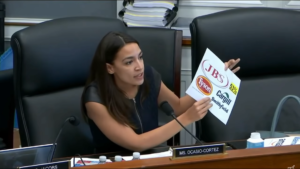As Fintech Grows, so Does the Scrutiny
Here’s What You Need To Know
Four out of five U.S. consumers have used “Buy Now, Pay Later,” or BNPL, which lets consumers split online purchases into installment plans or loans. It is not surprising then that Apple yesterday announced it will be the latest entrant into the sector. Yet the tech giant may come to regret the decision. Amidst the pandemic and now with inflation at record highs, consumers are increasingly turning to this new fintech vertical as an alternative to credit cards for purchases they otherwise wouldn’t be able to afford, and the shift has been rapid.
As its adoption has grown however, so have concerns from regulators, consumer advocates, and political activists skeptical of financial services companies. How this regulatory debate unfolds could have a significant impact on the larger push for innovation in financial services and retail sectors. To ensure the regulatory environment is shaped responsibly, here is what fintech public affairs professionals need to know.
As “Buy Now, Pay Later” Booms, Policymakers Worry About a Bust
BNPL Usage Has Grown Exponentially. Last year alone, shoppers made nearly $100 billion in BNPL purchases, up from just $24 billion in 2020—an astronomical 316% increase. BNPL is especially popular with younger consumers—a coveted demographic reticent to use credit cards after being buffeted by crises and saddled with more student loans than prior generations. BNPL appears poised to grow even more, with retailers and payment firms viewing it as a key component to surviving and thriving in a post-pandemic, inflationary, and possibly recessionary environment.
Subscribe to Receive Insights
"*" indicates required fields
From U.S. To Europe, Regulators Crack Down: Newly invigorated under the Biden Administration, the Consumer Financial Protection Bureau (CFPB) is taking aim at fintech companies offering these new forms of credit to consumers. In December 2021, the CFPB opened an inquiry, issuing a request to five companies – Affirm, Afterpay, Klarna, PayPal, and Zip – for information on the risks and benefits of BNPL loans. CFPB expressed concerns regarding the ease of consumer accumulation of debt, regulatory arbitrage, and data harvesting in a consumer credit market that is quickly changing as technology advances. It is not just CFPB putting the industry under a microscope either. As noted in its inquiry, the Bureau is working with regulators in Australia, Germany, Sweden, and the United Kingdom, who have all launched their own investigations.
What Is Driving the Biden Administration’s Interest In BNPL? Many of President Biden’s financial regulatory appointments have advanced the interests of ascendant progressives in his party, including CFPB Director Rohit Chopra, a protégé of Senator Elizabeth Warren (D-MA). Even before Biden took office, Warren and other progressives were preparing to take on fintechs and traditional lenders, seeking to constrain how they provide access to financing even if it undermines investment and innovation in the sector and restricts opportunities for consumers. Apple’s entrance may bring scrutiny from a different Warren acolyte, Federal Trade Commission Chair Lina Khan, who The Information notes “wrote a 2019 paper arguing for the separation of platforms and commerce.”
Consumer Advocates and Industry Analysts Sharpen Their Knives
Progressive Groups Crank Up Pressure On CFPB: In March, more than 75 consumer advocacy groups and their progressive allies submitted a joint letter to Chopra, urging him to take a more aggressive approach in regulating BNPL products to, in their view, safeguard consumers. The letter leveled allegations notably similar to those in the CFPB’s inquiry: the potential for unmanageable consumer debt, deceptive hidden fees, and an absence of transparent disclosures.
Industry Analysts Worry About the Bubble: The spike in BNPL usage has some industry analysts worrying the new trend is a bubble that will soon burst. Marshall Lux, who was Chief Risk Officer for Chase during the 2008 financial crisis, told CNBC, “When people start buying household goods on credit, that signals a problem.” NYU Stern School of Business professor Scott Galloway argues that because BNPL’s rapid growth is primarily fueled by younger consumers, a looming recession could spell disaster for the sector’s subprime-heavy target demographic. While retailers may view as their next best hope at keeping consumers spending amidst inflation, some worry whether BNPL can survive a possible recession.
To Protect Their Growth, BNPL Firms Must Anticipate More Scrutiny
As BNPL continues its rapid rise in popularity and usage, fintech public affairs professionals will need to address this growing scrutiny with careful consideration. Even though there their firms are already subject to various laws and regulations, there is a growing push for greater regulation. Nor will the sector’s potential reputational challenges just impact the fintech firms themselves. Retailers capitalizing on their payment services to win over inflation-laden consumers must also pay heed. To navigate their firms through these complex political and reputational risks, public affairs professionals will need to understand which policymakers and stakeholders are driving concerns and shaping new regulations so they can anticipate what comes next.



